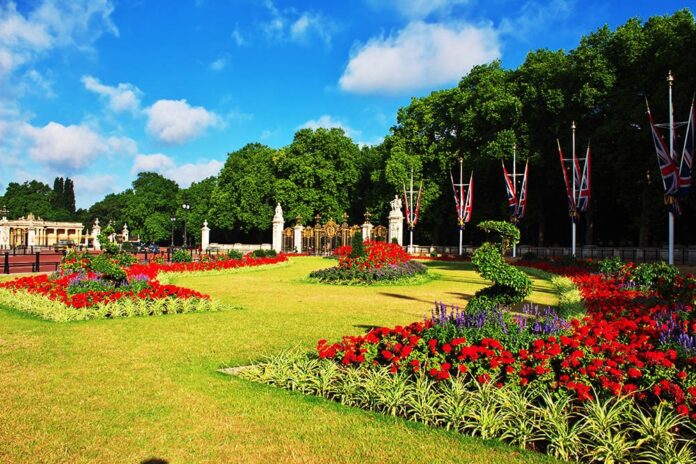Urban gardens have been gaining popularity over the past few years, and for good reason. These gardens not only provide a much-needed green space in an otherwise concrete jungle, but they also have numerous benefits for the environment and the community. In this article, we’ll explore why urban gardens are a must-have for any cityscape, and provide some tips and advice for getting started with your own.
The Importance of Urban Gardens
Urban gardens are an important tool for combatting the negative effects of urbanization. By providing green space in an otherwise grey landscape, urban gardens help to reduce the urban heat island effect, which is when cities become significantly hotter than rural areas due to the amount of concrete and asphalt. This can have a significant impact on the health and wellbeing of city residents, especially during heatwaves.
Urban gardens also help to improve air quality by absorbing pollutants and releasing oxygen. They also act as carbon sinks, helping to mitigate the effects of climate change. Additionally, urban gardens provide habitats for wildlife, which is especially important in cities where natural habitats are scarce.
But perhaps the most important benefit of urban gardens is the way they bring communities together. By providing a common space for people to gather, gardens help to create a sense of community and foster social connections. This is especially important in urban areas where people may feel isolated due to the busy and impersonal nature of city life.
Getting Started With Your Own Urban Garden
If you’re interested in creating your own urban garden, there are a few things you’ll need to keep in mind. Here are some tips and advice to help you get started:
Choose the Right Location
The first step in creating an urban garden is to choose the right location. Ideally, you want a spot that gets plenty of sunlight and is close to a water source. You’ll also want to make sure that the soil is suitable for growing plants – if it’s contaminated or compacted, you may need to bring in new soil.
Start Small
If you’ve never gardened before, it’s important to start small. Don’t try to create a massive garden right off the bat – instead, start with a small plot and see how it goes. As you gain experience and confidence, you can expand your garden.
Choose the Right Plants
When choosing plants for your urban garden, it’s important to choose species that are well-suited to your climate and soil conditions. You’ll also want to choose plants that are easy to care for and don’t require too much water or maintenance. Good options for beginners include herbs, tomatoes, and leafy greens.
Get the Right Equipment
To create a successful urban garden, you’ll need some basic equipment, including gardening gloves, a shovel, and a watering can or hose. You may also want to invest in some raised garden beds or containers to help conserve space and make it easier to care for your plants.
Join a Community Garden
If you don’t have space for a garden of your own, consider joining a community garden. These gardens are shared spaces where members can come together to grow plants and connect with others in their community. Community gardens are a great way to get started with gardening and learn from more experienced growers.
The Benefits of Urban Gardens for Communities
As mentioned earlier, one of the most important benefits of urban gardens is the way they bring communities together. Here are some of the ways that urban gardens can benefit communities:
Improved Access to Healthy Food
Many urban areas are food deserts, which means that residents have limited access to fresh fruits and vegetables. By growing their own produce, urban gardeners can help to improve access to healthy food and reduce reliance on processed and unhealthy food.
Increased Social Connections
Urban gardens provide a common space for people to gather and connect with each other. This can help to reduce social isolation and create a sense of community.
Improved Mental Health
Spending time in nature is known to have a positive effect on mental health. By creating green spaces in urban areas, we can help to improve the mental health and wellbeing of city residents.
Environmental Benefits
As mentioned earlier, urban gardens have numerous environmental benefits, including improved air quality, reduced urban heat island effect, and carbon sequestration.
In Conclusion
Urban gardens are a must-have for any cityscape. They provide a much-needed green space in an otherwise concrete jungle, and have numerous benefits for the environment and the community. By creating an urban garden of your own, or joining a community garden, you can help to improve access to healthy food, reduce social isolation, and improve the mental health and wellbeing of city residents. So, what are you waiting for? Get out there and start gardening!
- Revolutionizing Governance: Unveiling the Untold Strengths of Progressive Governments! - 23 de junio de 2023
- Revolutionary Unity Unveiled: Political Parties Bridge Ideological Divide, Pave the Way for Progressive Change - 15 de junio de 2023
- Revolutionizing Democracy: Unveiling the Futuristic Voting System that Transcends Borders! - 15 de junio de 2023

